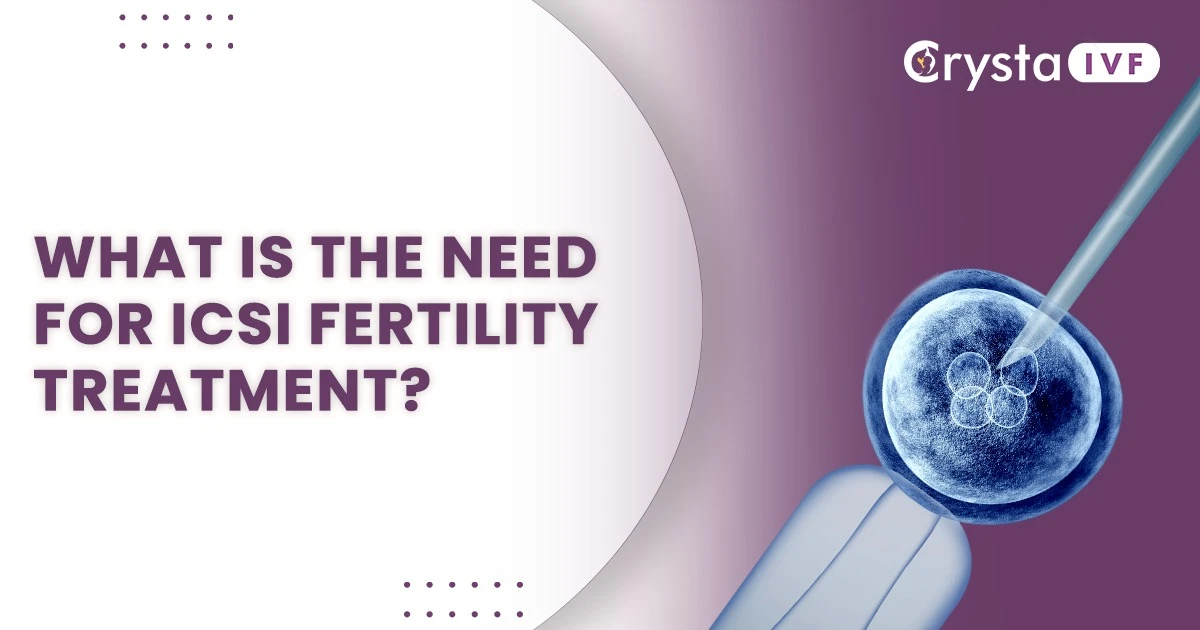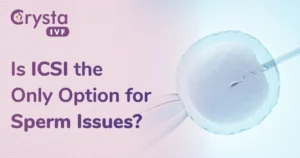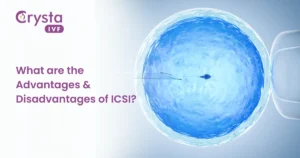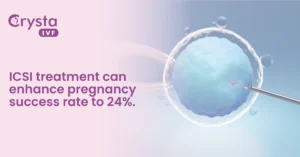There is an all-time surge in the number of IVF cases not only in India but worldwide, and if you are one of those married couples finding the most appropriate solution, you are at the right place. Not only a solution but proper guidance is something that can justify your search for the solution so that you can get clarity over fertility treatments like ICSI Fertility treatment.
Reality about Infertility
Due to dynamic lifestyles and all that extra hassle that adds up in their lifestyles, reproductive health becomes a big concern not only for married couples but even for young adults. That’s what most people think is the major cause of infertility, but it’s not the only one. Apart from a busy and stressful lifestyle, there are other factors related to genetics, hormonal abnormalities, disease or disorders, past surgeries, and various other causes.
With dedicated efforts and increased awareness, people became more open to adopting a possible solution suggested by the doctor for a successful pregnancy. There are several infertility treatments and types of IVF treatments–
- Intracytoplasmic Sperm Injection (ICSI)
- Frozen Embryo Transfer (FET)
- Elective Single Embryo Transfer (eSET)
- Natural In Vitro Fertilization (IVF)
But how do you know which treatment is best suited for you, and why should you pursue ICSI treatment over other infertility treatments available? Why ICSI or IVF? Instead of explaining ICSI in medical terms, we will give you a more easy-to-understand narrative.
What is ICSI treatment?
ICSI, in its full form, is Intracytoplasmic Sperm injection, a type of IVF treatment. In simpler words, instead of leaving or mixing sperm and egg cells in a medium and letting them fertilize eggs, we directly inject sperm into the ovum, which eliminates any risk related to failure of ovum penetration. This results in successful ovum fertilization with a higher success rate.
Why is ICSI treatment needed?
Unlike the conventional method of IVF, where thousands of sperm cells are mixed with egg cells, ICSI only needs one healthy sperm cell per egg. This is thanks to ‘Dr. Gianpiero D. Palermo’, who invented ICSI and initially developed this technique in 1991, opened up possibilities for couples to have a baby.
Will ICSI work for me?
Among all of the listed fertility treatments, their adoption and success rate depend completely on the causal factor. If male factor infertility is the cause that must be observed by semen analysis, then ICSI treatment becomes crucial. Now, you are aware of why ICSI is done.
Related Blog: Is ICSI the Only Option for Sperm Issues?
What other factors you should be concerned about?
Here are the most prior concerns that all the couples looking for an infertility treatment should be aware of-
- ICSI treatment is used in combination with IVF.
- ICSI procedure is more helpful in male-related infertility factors such as low sperm count, low sperm mobility, or abnormal sperm size or shape.
- It is a more targeted treatment among all IVF treatment as there is no acrosome reaction with the ovum outer layer, and the healthy sperm is directly injected into the cytoplasm of the ovum.
- ICSI can be helpful when sperm samples cannot be obtained through other means, like obstructive azoospermia.
- We can directly inject round spermatids instead of spermatozoa into the cytoplasm of the ovum. This is known as Round Spermatid Injection (ROSI).
- ICSI treatment success rate depends both on sperm and ovum quality and on the reproductive health of the partners.
- ICSI is an in vitro technique, meaning the sperm and ovum are fertilized outside the body.
How is ICSI done?
To make it simpler to understand, we will give you a superficial overview so that you get a clear vision of the ICSI treatment-
- The doctor will suggest to the female patient some specific medications to stimulate the ovaries, resulting in the production of multiple eggs.
- The mature eggs are then scooped out of the ovaries using a thin needle.
- A semen sample from the male partner is collected.
- Healthy sperm are identified, and a single sperm is injected into the cytoplasm of the ovum.
- Fertilized eggs are cultured for a period of 5 to 7 days.
- Healthy embryos get selected to be implanted into the uterus or womb of the female.
Limitations of ICSI fertility treatment
Now you may have questions like, Are ICSI babies healthy? Are ICSI pregnancies high risk?, Can ICSI damage the egg, or Why does ICSI fail?
You must be aware of the demerits of ICSI techniques to get all your answers and know the possible risks associated with ICSI.
Demerits of ICSI treatment
- All the steps, from extracting egg cells from the ovaries to injecting sperm into the egg cell, are delicate and risk damaging egg cells due to any minor error.
- Limitations related to the least or no availability of sperm samples, specifically in some male patients with severe infertility conditions.
- ICSI is not helpful in any kind of genetic-related abnormalities present in either one or both partners.
- As we discussed earlier, in the ICSI procedure, we selectively choose healthy sperm, which somewhat impacts the genetic diversity of the offspring.
- In traditional IVF, only the healthiest sperm can penetrate the egg, but in ICSI, even if the sperm chosen has substandard genetic material, it will be used for fertilization.
- There is an increased occurrence in the formation of monozygotic twinning, resulting in twin babies.
- ICSI fertility treatment comes on a costlier side, and some extra tests add up to the overall cost compared with conventional IVF fertility treatment.
Despite having all the listed demerits and limitations associated with ICSI fertility treatment, it is still one of the crucial options to deal with male-specific infertility.
Now you have all the answers to your most unusual questions, such as, Are ICSI babies smarter? Can ICSI cause chromosomal abnormalities? Or Can ICSI cause twins?
Also Read: Pros and Cons of ICSI: Making an Informed Decision
Preparation for the ICSI fertility treatment
First and foremost, both partners should mentally prepare them before beginning or adopting any infertility treatment. Then comes finding the best fertility centre near you, and the experience of the Fertility Specialists comes into account as it is directly proportional to the skills of the doctor who will do the treatment. Everyone wants complete assurance from the doctor that the treatment will be successful, leading to a healthy pregnancy.
Conclusion
In a nutshell, ICSI fertility treatment has its pros and cons. But it is a boon for those couples in which the male partner has infertility. With decades of experience from expert and skilled Fertility Specialists, infertility treatments are becoming more precise and achieving a higher success rate. Your search for such experienced Fertility Specialists ends here at Crysta IVF, where cutting-edge technology meets medical expertise, providing solution-oriented results.
Read More Blogs:
- What are the Causes of Male Infertility?
- Which Doctor Should You Consult For Male Infertility?
- Male Fertility Test and Treatment Options
- Is ICSI treatment Right for You?
- What is Zero Sperm Count?




